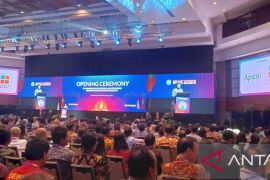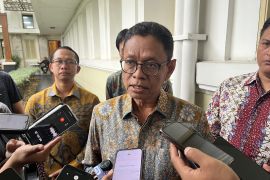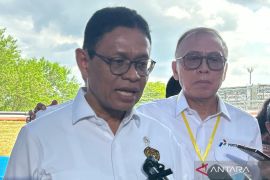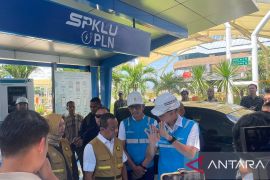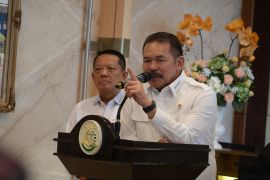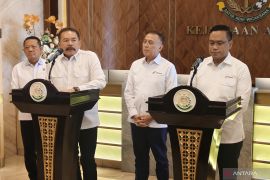"In Indonesia, fuel oil reserves can only last 20 days and all fuel oil procurements use Pertamina`s money, amounting to Rp26 trillion. This causes Pertamina`s operational costs to increase," Ali Mundakir, Vice President for Corporate Communications of state-owned oil and gas company Pertamina, said here over the weekend.
He added that the fuel oil reserves in Asian countries, such as South Korea and China, could supply their countries for three months.
"The fuel oil resilience of China and South Korea reached 90 days. Ideally, fuel oil resilience should be able to last for three months. In Indonesia, supplies of fuel oils could be hampered due to the lack of refinery plants," he said.
He added that one of the best solutions to the disruption of fuel oil supplies in Indonesia was to increase the number of refinery plants.
"The construction of a plant has small margins and needs incentives from the government," Ali said.
He added that Saudi Arabia provided incentives for the construction of its refineries.
"Saudi Arabia provided incentives in the form of crude discount for Saudi Aramco when it was establishing a plant. The government should have provided incentives and assisted in overcoming the barriers of investment for refinery plants in Indonesia," Ali said.
In the meantime, the Indonesian Chamber of Commerce and Industry (Kadin) has asked the government to phase out subsidies for fuel oils so that funds could be used for the development of infrastructure in the regions.
"Kadin has asked the government to eliminate fuel oil subsidies because, so far, it has been enjoyed not only by financially weak people, but also those who are categorically financially able consumers," Kadin Chairman Suryo Bambang said here on Tuesday.
He added that the fuel subsidy must be lifted and should be returned to poor people in other forms. Suryo cited, as an example, that about Rp5 trillion of the subsidy should be given to provinces to build regional infrastructure facilities.
Such subsidy funds could also be used for education and assisting local residents` businesses, particularly small and medium businesses.
In 2013, the subsidy burden reached Rp274 trillion, and it is predicted that it might swell to Rp300 trillion, he said.
In the 2013 state budget, the assumption of the fuel oil subsidy was set at Rp193.8 trillion, consisting of Rp193.3 trillion in current subsidies and a reduction of subsidies in 2011 reaching Rp3.5 trillion.
Further, subsidies for fuel oils and bio-fuels amounted to Rp140.46 trillion, liquefied natural gas in 3 kg cylinder was Rp26.45 trillion with a sales tax of Rp17.26 trillion, plus subsidy reductions.
(A014/KR-BSR/H-YH)
Editor: Jafar M Sidik
Copyright © ANTARA 2012
